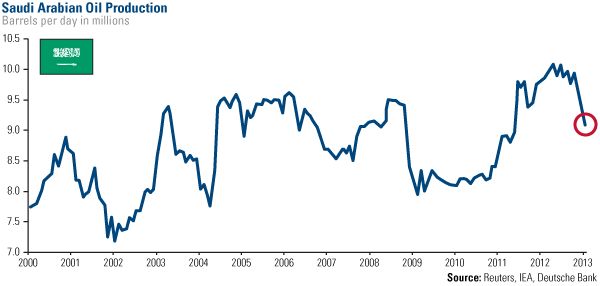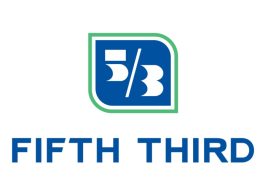Energy and Natural Resources Market Radar (February 18, 2013)

Strengths
- Global oil price benchmark Brent has climbed 7 percent since the start of the year and, according to Deutsche Bank commodity analysts, it has been propelled by positive economic data that has renewed optimism about global growth and consequently global oil demand, including: January oil data for China confirming a strong start to the year with near-record crude oil imports, driven less by stockpiling and more by demand; indications that Saudi Arabia has cut production to around 9 million barrels per day, more than 1 million barrels per day below peak levels in the prior summer which has tightened global supply; and geopolitical tensions in Middle East/North Africa.
- According to Macquarie research, Indian thermal coal imports reached a record high of 140 million tons on an annualized basis in December 2012, overtaking Japan to make the country the second-largest consumer of seaborne coal in gross weight terms (behind China).
- Also in coal, the U.S. exported 10 million tons in December, the highest since September, which brought full-year coal exports to a record 124.4 million tons, an 18 percent year-over-year increase.
Weaknesses
- The spot gold price fell to a six-month low this week, dragging gold mining equities down to nine-month lows as well.
- Natural gas fell 4 percent this week to a one-month low price on weaker demand, per weekly Energy Information Administration inventory data.
- Colombia, the world's fourth-largest coal exporter, produced 89.2 million tons of coal last year, missing its full-year target after problems with strikes and environmental permits bit into output, the government said on Thursday. Colombia's mining sector has been hit over the last year by a spate of labor disputes, including a strike at the main coal railway and a walkout at a Glencore-owned mine, as well as delays in environmental permits and a rise in guerrilla attacks. Coal production last year missed the 2012 target by nearly 9 million tons, according to the National Mining Agency, a new government body created to handle increasing demands on public institutions from a boom in the mining sector.
Opportunities
- China’s demand for commodities will grow “strongly” for some time, albeit at a slower pace, Reserve Bank of Australia Assistant Governor Christopher Kent said, “Because the Chinese economy is so much larger now, even a somewhat slower rate of growth represents a large quantity of new demand for raw materials.” Kent told the Committee for Economic Development of Australia forum, “For much of the past year we have been looking for signs that China’s growth might stabilize…. A broad range of indicators suggests that this has now occurred, with economic conditions improving through the second half of 2012.”
- PwC has issued a report that claims that “The global impact of shale oil could revolutionise the world’s energy markets over the next couple of decades, resulting in significantly lower oil prices, higher global GDP, changing geopolitics and shifting business models for oil and gas companies.”
Threats
- Australia's long boom in mining investment is likely to peak sometime this year, creating much uncertainty about whether the rest of the economy can take up the slack, a top central banker said on Friday. Reserve Bank of Australia (RBA) Assistant Governor Christopher Kent said the long-term outlook for the country's resources sector remained strong thanks to demand from an urbanizing China. But there were risks near-term. "Our expectation is that growth of economic activity will be a little below trend over 2013 before picking up a little in 2014," said Kent, who heads the central bank's economics unit.
- U.S. copper makers Southwire and Encore Wire are launching a legal challenge against the U.S. Securities and Exchange Commission (SEC) approval of JPMorgan Chase's physically-backed copper exchange traded fund (ETF). The companies, which say the copper ETF will inflate prices for the metal and distort supplies, filed a notice of appeal on Tuesday asking the U.S. Court of Appeals in Washington, D.C. to review the SEC's December 14 ruling that gave the green light for the copper ETF.
- Moody’s Investor Service warned that environmental factors, such as water scarcity, could adversely impact the ratings of global mining companies if they failed to proactively manage the accompanying operational and political risks to their businesses. In its “Global Mining Industry: Water Scarcity to Raise Capex and Operating Costs, Heighten Operational Risks,” Moody’s highlighted that mining projects were already competing with local communities for limited water resources, while having to comply with stringent environmental rules that could add to the capital expenditure (capex) budgets for new mines.










